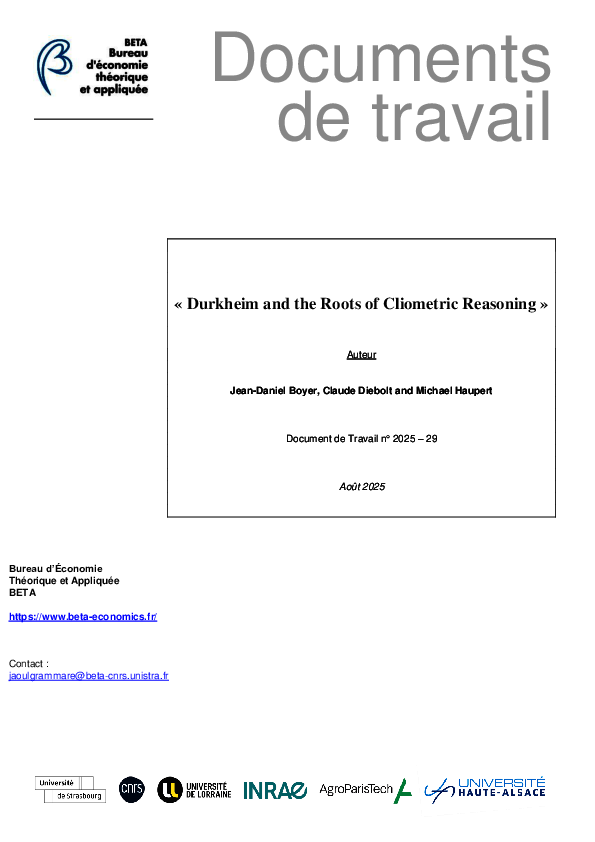Abstract
In the final chapter of The Rules of Sociological Method (1895), Émile Durkheim, the principal founder of French sociology, stresses the importance of adopting systematic quantitative comparisons in sociological research. First, quantitative methods enable the detection of previously unrecognized causalities and social laws that remain imperceptible through observation alone. Second, they assist in establishing and substantiating causal links. Durkheim even outlines two types of applications for serial quantitative analysis, distinguished by both static and dynamic perspectives. In this article, we argue that cliometrics offers a way to fulfill Durkheim’s initial (but soon abandoned) ambitions and transform sociology from a narrative discipline to one that incorporates quantitative methods and the precision they can bring to the treatment of social facts. This epistemological shift could open new avenues for both sociology and cliometrics.
Keywords
Cliometrics; Durkheimian Sociology; Social Causality; Quantitative Methods; Epistemology of the Social Sciences; Social Physics.



